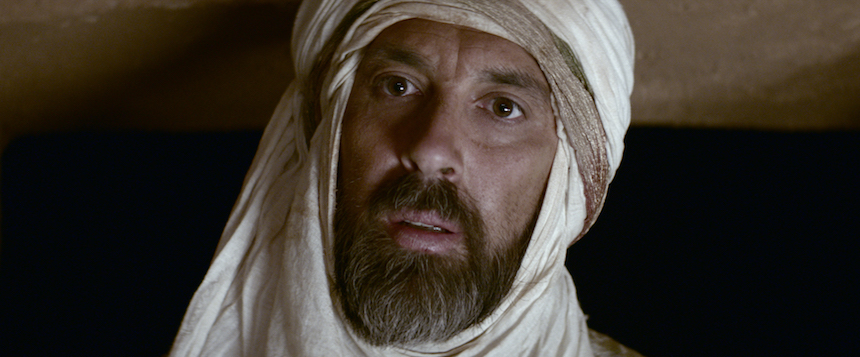Qur’an Cover-to-Cover: Day 25 (“Luqman” and “Sheba”)

It’s another long one today, one hundred and eighty-two verses.
Surah 31 – “Luqman” (Luqman)
The opening is fairly standard stuff…
- Muhammad is told to warn those who lead other away from the Qur’an and Allah
- “…those who believe and do righteous deeds – for them are the Gardens of Pleasure”
- Allah’s work of creation is extolled.
The title of this chapter refers to a person, “Luqman, the Wise”, an Abyssinian or Nubian slave who lived around Madyan, who was known to pre-Islamic Arabs. Muhammad is told to remind the people of when Luqman told his son “do not associate [anything] with Allah”. There then follow two ayat which comment on the two subjects raised here: care of parents and shirk. We then return to Luqman. He tells his son that Allah reveals all wrongdoings. He exhorts him to prayer, right action, patience and humility.
We turn to the subject of unbelievers, who chose to reject prophets who come with revelation and instead to follow the religious practices of their ancestors.
Muhammad is told to “not let…disbelief [of others] grieve you” since they will ultimately return to Allah: “We grant them enjoyment for a little; then We will force them to a massive punishment”. This seems rather vindictive.
The chapter ends by emphasizing that man doesn’t know the future, but Allah is all-knowing (“[Allah] knows what is in the wombs”).
Q1. In ayah 16, Luqman is telling his son that Allah reveals all wrongdoing, yes?
Q2. Why is Luqman not regarded as a prophet? Is it simply because the Qur’an doesn’t use that title in relation to him?
Q3. What does ayah 19 mean when it says “be moderate in your pace”? Don’t run around?
Q4. Do ayat 23-24 tell believers not to grieve the disbelief of others? This seems rather harsh!
Q5. Is Allah’s control over the day, night, sun and moon because people were worshipping them as deities?
Surah 34 – “Sheba” (Saba)
Things kick off talking about those who deny the Judgment and Resurrection. All says that, if He wanted, he could have the earth swallow them up or pelt them from the sky.
King David is mentioned. Allah tells the mountains and birds to repeat praises with him.
Next we come to Solomon. We are told that he had power over the wind, that Allah made flow for him a spring of liquid copper and that he had jinn who worked for him. These built him palaces, statues etc. We’re told that the jinn had no warning of Solomon’s death, except that a termite gnawed at his staff until it collapsed under his weight.
We’re told about the tribe of Saba. They had two fields of gardens and were told to “Eat from the provisions of your Lord”, but for some reason they refused and “set upon them the flood of the dam”. Allah replaced the gardens with bitter fruit.
In another example of incomprehensible ingratitude, Allah creates intermediate settlements at convenient intervals, but the people are insolent.
We return to the subject of those who claim deities besides Allah, but we don’t learn much new information. We do find out, however, that the people of Mecca “worship the jinn”.
Q1. What is the significance of the making of coats of mail in ayah 11? Were there coats of mail back then?
Q2. I don’t understand the reference to the morning and afternoon journeys of the wind in ayah 12. To whom is the threat at the end of that verse aimed? Jinn disobedient to Solmon?
Q3. My footnote says that statues were not prohibited until the time of Muhammad. Didn’t all the prophets have the same message?
Q4. Does ayah 14 say that the jinn’s service of Solomon was a “punishment”?
Q5. Why did the people of Saba reject the two gardens given to them?
Q6. I don’t understand ayah 19. Why are the people wanting the distances increased?
Q7. In ayah 41 we are told that the people of Mecca worshipped the jinn. Were they knowingly worshipping them? Or were they tricked, thinking that these jinn were deities?
Q8. Is ayah 47 saying that Muhammad did, at one point, ask for payment, but he is now returning it?
That’s all from the Qur’an for a while! I’ll be focussing on a few belated articles and be back to my cover-to-cover journey through the Qur’an in a couple of weeks.
